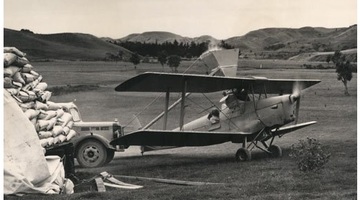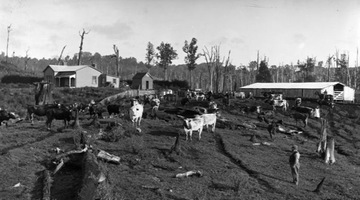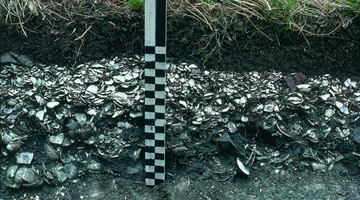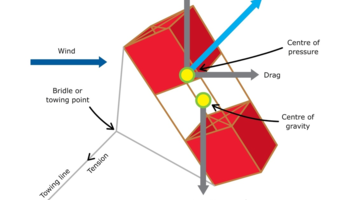

Use this timeline to to find out about some key dates relating to discoveries about farming and the environment in New Zealand. 800–1200 – People occupy New Zealand New Zealand is covered in ...
READ MORE

Since humans first arrived in New Zealand, we have had a significant impact on the environment – affecting and protecting the natural world around us. How have we left our mark on our land, our ...
READ MORE

Nanoscience is a field of science that is often given a specific starting date – 1959. It was an idea that had to wait for new tools to make it possible. However, nanoscience as we know it today ...
READ MORE

In this activity, students investigate what historic rubbish dumps (called middens) can reveal about people’s daily lives and the resources they used. Rights: New Zealand Historic Places Trust ...
READ MORE

In this activity, students will learn about some kite history and how kites fly before making and flying a kite themselves. By the end of this activity, students should be able to: use some kite ...
READ MORE

In this activity, students explore how flight has developed over time with discussion about trends and future possibilities. By the end of this activity, students should be able to: explain in a ...
READ MORE

Be part of a worldwide movement and use Global Earth Challenge to submit or classify photos to help our planet’s environment and human health. Global Earth Challenge is a citizen science campaign ...
READ MORE

This citizen science project wants your assistance to extract information from various climate scientific graphics to help combat misinformation and support scientific communication. Using this ...
READ MORE

Both science and mātauranga pūtaiao build knowledge and understanding about our world. Often, we start with curiosity about something we’ve noticed and we want to find out more. At other times ...
READ MORE

In this recorded professional learning session Dr Rosemary Hipkins joins us to discuss the concept of enduring competencies – competencies that focus on what students can do with their knowledge ...
READ MORE

In this recorded webinar Pauline Waiti and Rosemary Hipkins explore the idea of knowledge systems with examples from science and mātauranga Māori. The report Enduring Competencies for Designing ...
READ MORE
Dr Ross Monaghan from AgResearch at Invermay in Otago talks about fertilisers – what they are and why they are used on farms. Point of interest: Ross talks about using a nutrient budget for ...
READ MORE
Dr Ross Monaghan from AgResearch at Invermay in Otago talks about various practices that can be employed to manage nutrient losses from becoming a problem on farmland.
READ MORE
Dr Adrian McDonald tells us why his research on the interaction between atmospheric dynamics, chemistry and climate is important for the development of climate models. Points of interest: Why do ...
READ MORE

This timeline lets you see the historical developments in technology related to weather monitoring, measuring and forecasting. It also shows how scientific thinking changed over the centuries as ...
READ MORE

Lime, produced by calcining limestone, plays a key role in a multitude of industrial, manufacturing and agricultural processes. This interactive outlines the process steps taken at the McDonald’s ...
READ MORE

This slideshow, from the webinar Enduring competencies for designing science learning pathways, provides additional support for both part 1 and 2 of the video tutorial. Use the Slideshow menu for ...
READ MORE